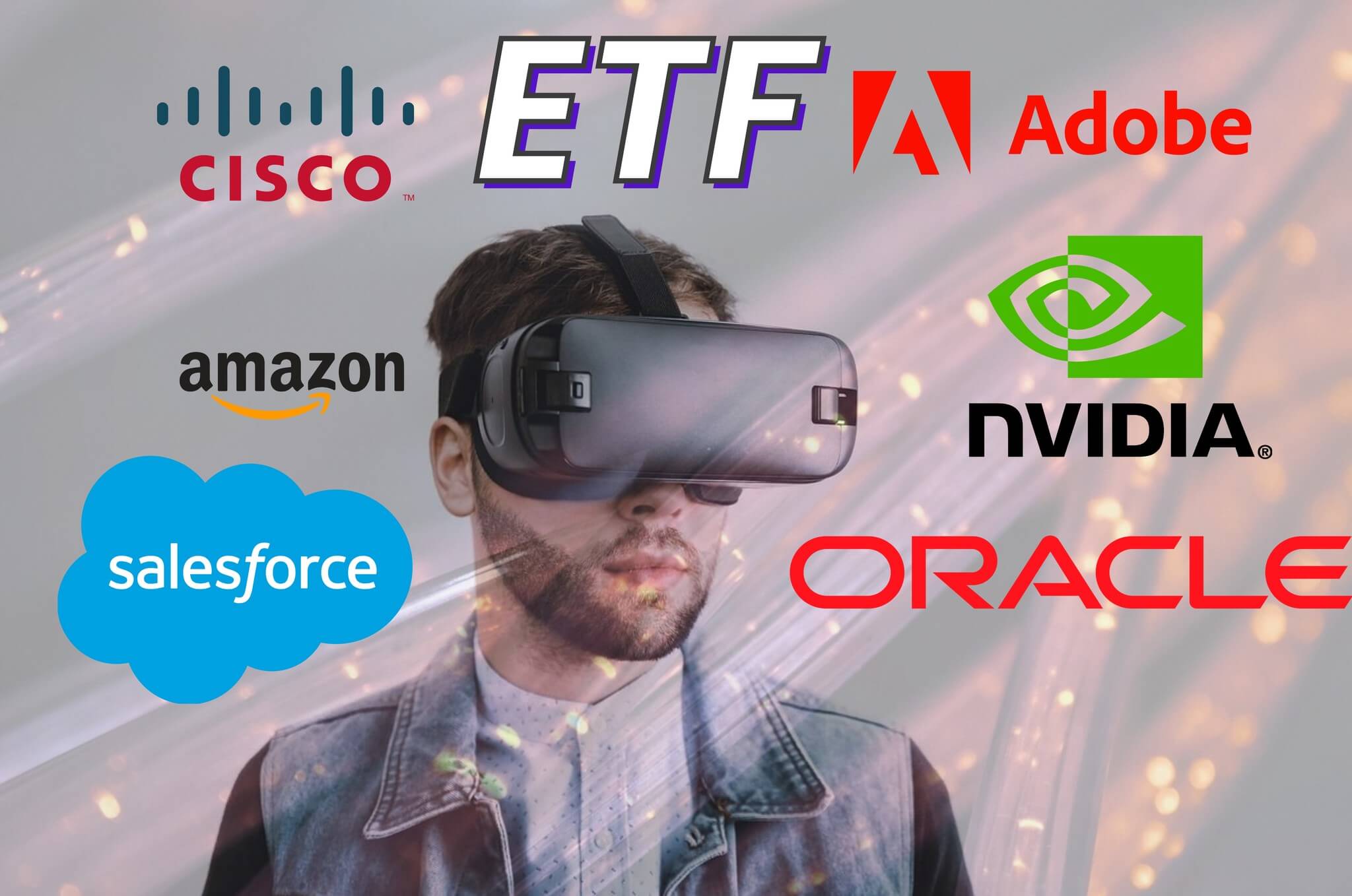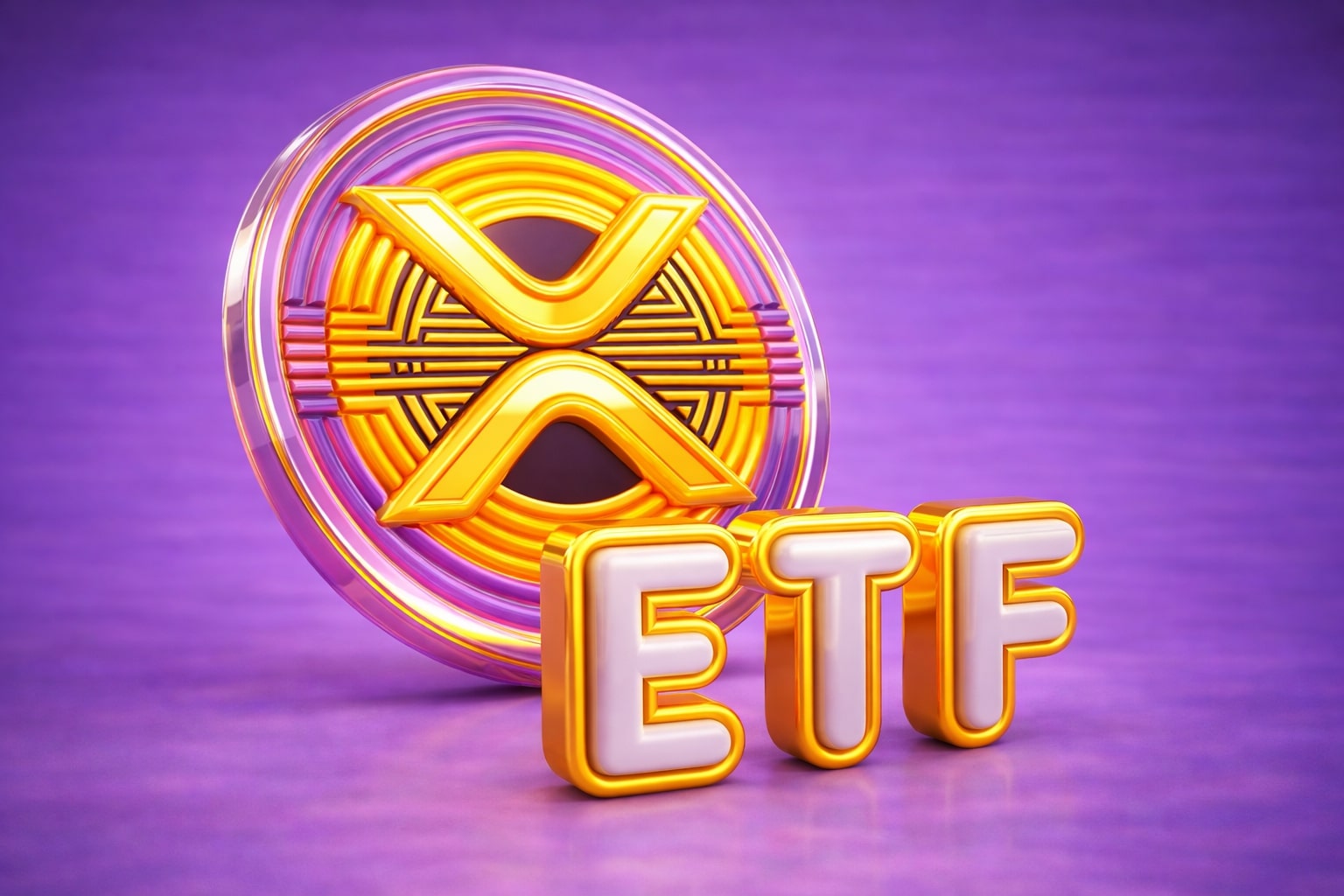
Vanguard Technology ETF VGT NYSE:NVDA and NYSE:AMZN Stocks
Investing in the Future of Technology: An In-Depth Examination of ETFs and Individual Stocks Traded on NYSE and NYSEARCA, Including Vanguard Information Technology ETF (VGT), NVIDIA, and Amazon, Along with a Detailed Analysis of Performance Metrics, Risk Management, and the Dynamic Landscape of the Global Tech Sector | That's TradingNEWS
GICS's Redefinition and Its Impact on the Tech Sector
Historical Changes by GICS
The Global Industry Classification Standard (GICS) has historically been a beacon for investment classification, but changes in its definition have raised eyebrows and concern amongst investors. Since 2018, these changes have notably affected stocks within the Information Technology sector.
Starting in 2018, GICS removed tech giants like Alphabet (GOOG) (GOOGL) and the then-known Facebook (META) from the Technology index. A recent major shift in March 2022 saw the removal of Data Processing and Outsourced Services stocks such as Visa (V), Mastercard (MA), PayPal (PYPL), and Automatic Data Processing (ADP), among others. The cumulative effect of these changes was a nearly 10% reduction in what previously composed the GICS Tech sector, with unquantifiable impacts from the loss of Alphabet and Meta.
These changes have affected investors, particularly those holding the Vanguard Information Technology ETF (NYSEARCA:VGT) and the Technology Select Sector SPDR Fund (XLK), which use the GICS definition.
Performance of Affected ETFs
The effect on the ETFs is both profound and complex. VGT holds all 322 stocks assigned by GICS to the Technology sector, while XLK only houses 68 stocks from the Information Technology sector included in the S&P 500. As changes have been made, the comprehensive tech sector tracked by VGT has been impacted, holding many unprofitable stocks and smaller-cap stocks that were more severely hit by the rise in interest rates since March 2022.
The performance during the latest tech recovery has been inconsistent across different time frames. An analysis of the period between 3/20/2018 - 3/22/2022 showed that both XLK and VGT outperformed other Technology-focused investments. However, post-March 2022, VGT has gone from near-best to an also-ran, and XLK has shown a complicated performance affected by various implicit factors.
Alternatives for the Tech Investor
Given the shifts in GICS's classification, investors have been looking for alternatives to stay robust in the tech sector. Among the alternatives are:
iShares U.S. Technology ETF (NYSEARCA:IYW)
IYW holds 136 stocks, far fewer than VGT's 322, and still retains shares in Alphabet and Meta, which constitute 13.92% of its total value as of July 28, 2022. It has a higher expense ratio of .39% compared to VGT's .10%. Interestingly, it did not hold shares of major data processing stocks removed from the GICS sector, nor many small semiconductor companies like VGT. However, like VGT, it does not hold Amazon (AMZN), treating it as a retail stock.
Fidelity® Select Technology Portfolio (FSPTX)
This active mutual fund is a No Transaction Fee (NTF) fund with a higher expense ratio of .70%. It holds 86 stocks representing 72 companies. Since it's an active fund that doesn't follow a published index, complete holdings are not public, but its performance has been notable.
Invesco QQQ Trust (QQQ)
QQQ is often the go-to for investors wanting a Technology tilt. However, it's a tech-heavy ETF by accident, picking the 100 stocks with the largest market caps which IPO on the NASDAQ exchange. Although it is currently Tech heavy, there is no guarantee it will remain that way.
iShares U.S. Tech Independence Focused ETF (IETC)
This relatively new active ETF that started trading in 2018 has an expense ratio of .17%. The fund's unique weighting of holdings sets it apart from market cap weighted ETFs and Funds.
A Closer Look at Vanguard Information Technology ETF (NYSEARCA:VGT)
The Vanguard Information Technology ETF stands out as one of the largest and most popular ETFs in the US information technology sector. With a low expense ratio of 0.10%, it offers significant cost advantages and also holds a dividend yield of 0.69%.
Top Holdings
Comprising 328 stocks, VGT's portfolio is heavily concentrated in top 10 holdings, accounting for 61.71% of its assets. Key holdings include Apple Inc. (AAPL), Microsoft Corporation (MSFT), NVIDIA Corporation (NVDA), Broadcom Inc. (AVGO), Salesforce, Inc. (CRM), Cisco Systems, Inc. (CSCO), Accenture plc (ACN), Adobe Inc. (ADBE), Advanced Micro Devices, Inc. (AMD), and Oracle Corporation (ORCL).
Performance and Resilience
The Vanguard Information Technology ETF (VGT) stands as a remarkable entity within the technology sector. It has manifested an exceptional annualized return of 20.39%. This performance is not just a fleeting burst of success; it's a testament to the resilience and strategic orientation of the fund.
Inside the VGT: A Closer Examination
Delving into the fund's composition, VGT comprises a rich array of top technology companies. This mix facilitates its strong performance. The fund's success is tethered to its diversification and the inherent growth potential within the tech sector.
Portfolio Composition
The portfolio of VGT is carefully structured to mirror the broader technology landscape. Holding blue-chip companies like Apple (AAPL) and Microsoft (MSFT), it strikes a balance between established leaders and emerging innovators. This blend has led to consistent growth and solid returns.
Sector Allocation
The sector allocation within VGT is crafted to seize opportunities across various technology sub-sectors. From software and services to hardware and semiconductor companies, the fund leverages the full spectrum of technology to generate value. The interplay between different segments of technology has allowed VGT to weather volatility and tap into diverse growth avenues.
Risk Management
VGT does not only chase high returns but also maintains a balanced risk profile. Its correlation with the broader market, risk-adjusted returns, and the management's proactiveness in response to market changes are key to the fund's resilience. Through effective risk management, VGT has demonstrated the ability to navigate complex market landscapes.
Contrasting Opinions: VGT versus Alternative Investments
Despite the apparent success of VGT, some investment analysts posit alternatives that may offer competitive or even superior returns. Understanding these contrasting opinions requires a meticulous examination of different investment vehicles within the technology landscape.
Other Technology Funds
While VGT has outperformed many of its peers, there are still other ETFs like XLK, the Technology Select Sector SPDR Fund, that have shown promise. Comparing and contrasting VGT with XLK provides insights into how different funds approach the technology sector, both in terms of strategy and execution.
XLK: A Different Approach
XLK deploys a distinct strategy, focusing on different technology niches and employing varied weighting mechanisms. It offers a different flavor of diversification and might appeal to investors seeking an alternative to VGT. Its performance metrics and risk profile present a comprehensive picture of how it stands relative to VGT.
Individual Technology Stocks
Apart from ETFs, individual stocks like NVIDIA (NVDA) and Amazon (AMZN) have demonstrated strong performance. These companies, owing to their industry leadership and innovative edge, have become compelling investment alternatives. Analyzing these stocks alongside VGT allows for a nuanced understanding of the potential rewards and risks inherent in technology investments.
Individual Technology Stocks: A Deeper Dive
NVIDIA (NVDA): Innovating the Future
NVIDIA (NVDA) is not just another name in the technology sector. It represents the cutting edge of graphics processing technology. With the increasing demand for GPU-intensive tasks, including artificial intelligence, machine learning, and high-performance computing, NVIDIA has strategically positioned itself in a critical intersection of modern technology.
Product Line and Market Presence
The diverse product line of NVDA covers everything from gaming to professional visualization and data centers. The company's collaboration with major players in various sectors, including automotive and healthcare, has further cemented its position as an industry leader.
Financial Performance
NVDA's financials are a reflection of its innovation-driven approach. Revenue growth, earnings, and profit margins all tell a story of a company in sync with the demands and opportunities of the contemporary tech landscape. Its stock price has often mirrored these successes, rendering it a viable option for investors seeking growth.
Amazon (AMZN): A Tech Giant Beyond Retail
Amazon (AMZN) might be synonymous with online retail, but its influence in the technology sector cannot be overlooked. From cloud computing with Amazon Web Services (AWS) to AI-powered products like Alexa, Amazon has demonstrated its ability to leverage technology for continuous growth.
AWS: A Dominant Force
Amazon's cloud computing arm, AWS, has become a key player in the global cloud infrastructure market. It caters to a wide array of businesses, ranging from startups to Fortune 500 companies. The recurring revenue model and consistent growth in the cloud sector have made AWS a significant contributor to Amazon's overall revenue.
Strategic Acquisitions and Innovation
The company's acquisition strategies and in-house innovations have further broadened its technological footprint. Acquisitions like Whole Foods and the development of delivery technologies are examples of Amazon's multifaceted approach to leveraging technology.
VGT vs. Individual Stocks: An Analytical Comparison
Investing in technology is not just about picking winners; it's about understanding the landscape and strategically positioning one's portfolio. While VGT provides an extensive exposure to the technology sector, individual stocks like NVDA and AMZN offer focused growth opportunities.
Portfolio Diversification
The Vanguard Information Technology ETF (VGT) is built to offer diversification across the tech landscape. With holdings in leading companies across different technology sub-sectors, it aims to provide balanced exposure and risk mitigation.
Investing in individual stocks like NVDA and AMZN, on the other hand, provides a targeted approach. The rewards might be higher, given the individual successes of these companies, but the risks are equally concentrated.
Performance Metrics
Analyzing performance metrics involves not only looking at the returns but also understanding the underlying factors contributing to those returns. VGT's annualized return of 20.39% is a combined result of its holdings, while the performance of NVDA and AMZN can be attributed to their individual successes and strategies.
Risk Considerations
Risk management plays a crucial role in investment decisions. VGT's risk profile is spread across its diverse holdings, providing a level of protection against sector-specific downturns. Individual stocks, conversely, carry higher specific risks associated with the companies themselves.
ETFs vs. Individual Stocks: A Philosophical Debate
The choice between an ETF like VGT and individual stocks like NVDA and AMZN transcends mere numbers. It's a philosophical decision that aligns with an investor's goals, risk tolerance, and belief in specific companies or sectors.
Understanding the intricate dynamics of VGT, NVDA, and AMZN requires a multifaceted approach that considers market trends, technological advancements, company strategies, and financial performance. By dissecting these components, investors can make informed decisions that resonate with their investment philosophies and future outlooks.
GICS's Redefinition and Its Consequences on the Technology Sector
The Global Industry Classification Standard (GICS) has undergone significant changes since 2018, with the removal of major stocks such as Alphabet (GOOG) (GOOGL), Facebook (META), Visa (V), Mastercard (MA), PayPal (PYPL), and Automatic Data Processing (ADP), resulting in a marked reduction in the GICS Tech sector composition. These changes have had complex and far-reaching impacts on tech sector investment, particularly affecting ETFs like Vanguard Information Technology ETF (VGT) and the Technology Select Sector SPDR Fund (XLK).
Investing in Technology: Navigating the Evolving Landscape
The reclassification by GICS has led investors to seek alternative routes to stay vibrant in the tech sector. Various investment vehicles have come into prominence, including:
- iShares U.S. Technology ETF (IYW), offering a more focused approach with its 136 stocks.
- Fidelity® Select Technology Portfolio (FSPTX), an active mutual fund with significant performance but higher expenses.
- Invesco QQQ Trust (QQQ), which is known for its tech-heavy composition.
- iShares U.S. Tech Independence Focused ETF (IETC), a relatively new active ETF with unique weighting.
Vanguard Information Technology ETF (VGT): A Comprehensive Analysis
Vanguard Information Technology ETF (VGT) has become a symbol of consistent growth and resilience within the tech sector. Its portfolio is made up of 328 stocks, including top holdings like Apple (AAPL), Microsoft (MSFT), NVIDIA (NVDA), and Broadcom (AVGO), contributing to its diversified approach.
- Performance: VGT's annualized return of 20.39% is reflective of its strategic orientation.
- Risk Management: Its balanced risk profile demonstrates effective navigation through complex market dynamics.
Individual Technology Stocks: Focused Growth Opportunities
Investing in individual stocks such as NVIDIA (NVDA) and Amazon (AMZN) can provide targeted growth opportunities.
NVIDIA (NVDA): A leader in graphics processing, it stands at the forefront of modern technology with a diverse product line and innovative approach. Financially, NVDA's revenue growth and stock price mirror its success.
Amazon (AMZN): More than an online retail giant, Amazon has leveraged technology through its AWS arm, strategic acquisitions, and innovations, making it a significant player in the tech arena.
ETFs vs. Individual Stocks: Investment Philosophies
Investing in an ETF like VGT provides a diversified approach with broad exposure to the tech sector, balancing potential rewards and risks. On the other hand, individual stocks like NVDA and AMZN offer focused growth opportunities with specific associated risks.
Conclusion: A Strategic Approach to Technology Investment
In the evolving landscape of technology investment, both broad-spectrum funds like VGT and individual stocks like NVDA and AMZN present unique advantages and challenges. The GICS's redefinition and its subsequent effects have added complexity to the investment scenario.
Investors seeking diversification and balanced exposure may lean towards VGT for its proven track record and risk management. Those looking for targeted growth and are willing to embrace specific risks may find individual stocks like NVDA and AMZN more appealing.
The choice is a philosophical one, dictated by an investor's goals, risk tolerance, and belief in specific strategies. Through a nuanced understanding of the market trends, technological advancements, company dynamics, and performance metrics, investors can strategically align their portfolios to resonate with their investment philosophies and long-term outlook.
Final Verdict:
- VGT: A strong buy for long-term investors seeking diversified exposure to the tech sector.
- NVDA: A buy for those looking to capitalize on innovation and growth in graphics processing technology.
- AMZN: A hold for investors looking to tap into Amazon's multifaceted technological influence.
That's TradingNEWS
Read More
-
UNG ETF At $12.25: Can Natural Gas, LNG Expansion And AI Power Demand Ignite A Rebound In 2026?
31.12.2025 · TradingNEWS ArchiveStocks
-
XRP ETFs XRPI at $10.52 and XRPR at $14.90 End 2025 Red as Inflows Hit $1.15B
31.12.2025 · TradingNEWS ArchiveCrypto
-
Natural Gas Price Slides Toward $3.70 as Warm Forecasts Dominate but LNG Exports Support NG=F
31.12.2025 · TradingNEWS ArchiveCommodities
-
USD/JPY Price Forecast - USDJPY=X Holds Near 156.60 as Fed Easing and BoJ Tightening Collide at Year-End
31.12.2025 · TradingNEWS ArchiveForex


















